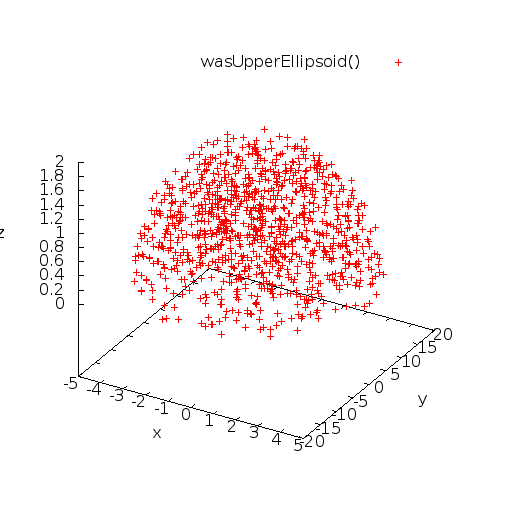Graph
Theory
The code performs the follows the reasoning: for a chosen  ,
,  and
and  , select a random
, select a random  with
with  ,
,  with
with  and
and  with
with  . If and only if the equation of the ellipsoid in standard form:
. If and only if the equation of the ellipsoid in standard form:

is satisfied, then the generated  and
and  values describe a point
values describe a point  which lies within the elipsoid's perimeter. Otherwise, select new values for
which lies within the elipsoid's perimeter. Otherwise, select new values for  ,
,  and
and  and loop until the equation is satisfied.
and loop until the equation is satisfied.
Since we want, in this case, an upper elipsoid, all  values must be positive.
values must be positive.
Code
- wasUpperEllipsoid.lsl
/////////////////////////////////////////////////////////////////////////// // Copyright (C) 2016 Wizardry and Steamworks - License: GNU GPLv3 // /////////////////////////////////////////////////////////////////////////// vector wasUpperEllipsoid(float a, float b, float c) { float x = llPow(-1, 1 + (integer) llFrand(2)) * llFrand(a); float y = llPow(-1, 1 + (integer) llFrand(2)) * llFrand(b); float z = llFrand(c); if(llPow(x/a,2) + llPow(y/b,2) + llPow(z/c,2) <= 1) return <x, y, 0>; return wasUpperEllipsoid(a, b, c); }
